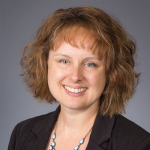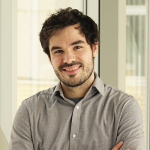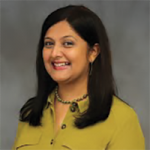Events
Planetary Health and the Humanities Conference Program
This conference brought humanistic and interdisciplinary perspectives to bear on “planetary health,” a new concept and cross-disciplinary field emerging from growing concerns over the direct impacts of environmental degradation and decline on the interdependent health of humans and ecology.
To view recordings of this event, please visit our media page here.
Location: Texas A&M Hotel and Conference Center, Hullabaloo Room
Event Poster
Speakers' Abstracts and Bios
Keynote Lecture:
“Racial Climates, Ecological Indifference” - Dr. Nancy Tuana

Nancy Tuana is DuPont/Class of 1949 Professor of Philosophy and Women's, Gender, and Sexuality Studies at Penn State University and was the founding director of the Penn State Rock Ethics Institute. Dr. Tuana is a philosopher of science and feminist science studies theorist who has been a longtime advocate of interdisciplinary research and education. Her work on climate justice includes research on the topic of gender and climate change and her forthcoming book Racial Climates, Ecological Indifference: An Ecointersectional Approach, focuses on the infusions of systemic racisms and climate injustice. Tuana has developed expertise in working as a member of scientific teams to address issues of adaptation to climate impacts that are attentive to the values and lifeways of those impacted. She is currently a member of the NSF funded Megalopolitan Coastal Transformation Hub (MACH) https://coastalhub.org/ which is developing a climate-resilient decision-making framework that will support coastal communities in the New York City-New Jersey-Philadelphia region and beyond as they navigate a deeply uncertain future. Her work contributes to MACH's commitment to the authentic integration of justice, equity, diversity, and inclusion into its practices.
Chair: Emily Brady (Director, Glasscock Center and Philosophy, Texas A&M)
Thursday, March 31st
4:00pm - 6:00pm: Keynote Lecture: Nancy Tuana (Philosophy, Penn State University)
6:00pm - 8:00pm: Dinner (provided)
Friday, April 1st
8:30am: Light Breakfast (provided)
Panel 1: Indigenous & Decolonial Approaches to Planetary Health (9:00am - 11:00am)
9:00am - 9:15am: Omar Rivera (Philosophy, Texas A&M University)
“Reflections on Reciprocity”
9:20am - 9:35am: Nicole Redvers (Indigenous Health; Family & Community Medicine, University of North Dakota)
“The Determinants of Planetary Health: Indigenous Community Reflections”
9:40am - 9:55am: Jordan Daniels (Philosophy, Pomona & Pitzer Colleges)
“Mind-Body Dualism and Indigenous Place-Thought: Descartes and Watts on Nature”
10:00am - 10:15am: Mayari Hengstermann (Health Studies, Universidad del Valle de Guatemala)
“Dumped: Impacts of Plastic Pollution Among Rural Indigenous Communities in Santa María Xalapán, Jalapa Guatemala”
10:20am - 11:00am: Q&A
11:00am - 11:15am: Break (light refreshments provided)
Panel 2: Pandemics, Ecology, & Wellbeing (11:15am - 1:15pm)
Chair: John Casellas Connors (Geography, Texas A&M)
11:15am - 11:30am: Rosemary Jolly (English, Penn State University)
“Decolonizing ‘Man’, Resituating Pandemic: An Intervention in the Pathogenesis of Colonial Capitalism”
11:35am - 11:50am: Krithika Srinivasan (Geography, University of Edinburgh)
“Re-animalising Wellbeing: Multispecies Justice After Development”
11:55am - 12:10pm: Robin Chen-Hsing Tsai (English, Tamkang University)
“Climate Change, Zoonosis and Narratives of Disease in Lawrence Wright’s The End of October”
12:15pm - 12:30pm: Kathryn Whitlock (Media Studies, University of Texas Dallas)
"Caring in the Anthro-Capitalocene: The Entanglement of Butterflies, Citizen Science, and Surveillance"
12:35pm - 1:15pm: Q&A
1:15pm - 2:15pm: Lunch (provided)
Panel 3: Climate Change & Planetary Health (2:15pm - 4:15pm)
Chair: Troy Harden (Director, RESI and Sociology, Texas A&M)
2:15pm - 2:30pm: Michelle Meyer (Hazard Reduction and Recovery Center, Texas A&M)
“Irregular Disaster to Continually Crisis: The Altruistic Community Under Climate Change”
2:35pm - 2:50pm: Jamie Draper (Politics, University of Oxford)
“Climate Change and Displacement: Towards a Pluralist Approach”
2:55pm - 3:10pm: Daniel Mahoney (Baylor College of Medicine & Texas Children’s Hospital)
“Examining Proposed Solutions to Address Human and Planetary Health in the Face of Climate Change”
3:15pm - 3:30pm: Priya Dave (Harvard Medical School & Mt. Sinai Hospital)
“Green Space Ethics”
3:35pm - 4:15pm: Q&A
4:15pm - 4:30pm: Break (light refreshments provided)
4:30pm - 5:15pm: Roundtable
Visit the Humanities: Land Sea Space webpage
This event is co-sponsored by the Race and Ethnic Studies Institute.
"Who Owns the Stories of Our Lives?"
A reading and reflection with creative writer Lise Saffran
To view recordings of this event, please visit our media page here.
Location: GLAS 311 (Library)
This event is free and open to all. Registration is required; please use this form.
Hybrid option, online access: tx.ag/CrWrWeb
April 25, 2022 at 2:00-3:30pm
The Glasscock Center for Humanities Research and the English Department at Texas A&M University invite you to join us for a reading and discussion with public health storyteller, novelist, and essayist Lise Saffran. As a visiting guest speaker during Fall 2021, Saffran studied and discussed an archive of first-person stories about Ebola, malaria, and COVID-19 collected by the Global Health Humanities T3 grant (Howell, Showers Johnson, Dague, Yeoman). She now returns to read excerpts from the final draft of the creative work inspired by these stories and discuss the process of composition. Her work, entitled “Crossing the River: A Meditation on Infection, Community, and Grief in a Changing World,” pieces together excerpts from oral histories, historical and literary research, and personal reflection, forming a lyrical nonfiction collage illuminating the challenges in this type of storytelling. After the reading, she will reflect upon her methods and process, answering questions such as the following: in a media environment where stories both connect and divide us, how do we balance curiosity, humility, respect, and empathy as we approach the accounts of others’ lived experiences and perspectives? When are public health stories such as those that involve Ebola, Malaria and Covid-19 global health stories and when are they specific, local, and personal?
Guest Speaker:
Lise Saffran, MPH, MFA
Associate Teaching Professor
Department of Public Health, University of Missouri
The former Director of the Master of Public Health Program at the University of Missouri and recent Co-Chair of the Health Humanities Consortium (HHC), Lise Saffran’s research, teaching and writing center on the value of narrative in public health communication and as a mechanism for self-reflection toward the ethical practice of public health. Her creative publications include the novel Juno’s Daughters and her scholarly publications include explorations of authenticity in science communication and the power of fiction writing to disrupt biases.
Global Health Humanities: Spring 2022 Virtual Brown Bag
"How has the pandemic affected how you think about your humanities research?"
To view recordings of this event, please visit our media page here.
Location: Zoom
This event is free and open to all. Registration is required; please use this form.
Zoom details:
Zoom link
Meeting ID: 921 4975 9422
April 21, 2022 at 1:00-2:30pm CT
This informal series is meant to provide insight into emerging conversations in health and the humanities. In each session, scholars will consider questions regarding how they have refocused or reassessed their research during the pandemic. They will be invited to consider and speak about questions such as the following: how has the pandemic changed your thinking about your research? How does one balance research responsiveness with long term impact? Has the scope of your research been altered to intersect with multiple fields or collaborations across disciplines? Has the pandemic challenged key terms and concepts within your field, such as migration, borders, social responsibility, inequity, and health?
Speakers Panel:
Dr. Idia Thurston, Associate Professor, Departments of Psychological and Brain Sciences and Health Promotion and Community Health Sciences
Dr. Rachel Lim, Visiting Assistant Professor and ACES Fellow, Department of History
Jessie Cortez, PhD Candidate in English Literature
"How Has the Pandemic Affected How You Think About Your Humanities Research?" | A virtual brown bag lunch series
November 1, 2021 | 12:00-1:00 pm
Online via Zoom | Register here: tx.ag/PandemicResearchEffects
Free & open to the public
This informal series is meant to provide insight into emerging conversations in health and science studies and the humanities. In each session, scholars will consider questions regarding how they have refocused or reassessed their research during the pandemic. They will be invited to consider and speak about questions such as the following: How has the pandemic changed your thinking about your research? How does one balance research responsiveness with long term impact? Has the scope of your research been altered to intersect with multiple fields or collaborations across disciplines? Has the pandemic challenged key terms and concepts within your field, such as migration, borders, social responsibility, or inequity? Has the pandemic raised new questions and issues? The event will conclude with open conversation amongst participants.
Speakers:
Sara DiCaglio, Assistant Professor | Department of English, Texas A&M
Omar Rivera, Associate Professor | Department of Philosophy, Texas A&M
Joan Wolf, Associate Professor | Women's and Gender Studies Program, Texas A&M
Conversation facilitated by Jessica Howell, Professor | Department of English
"The Role of Humanities in a Time of Pandemic"
Wednesday, April 21, 2021 | 4:00-5:00pm CST
Click here to view the recorded event
This webinar offers insights from grant-supported projects in the humanities and humanistic social sciences that examine individuals’ stories regarding their own, lived experiences during a pandemic. We create a dialogue between these humanities projects and the scholarship and clinical experiences of medical doctors during COVID-19, which include considerations of empathy and global health humanities education. Join us and participate in this dynamic, cross-disciplinary conversation as these scholars present perspectives from the humanities and medical fields on the lived experience of patients, community members, and practitioners during a pandemic.
Quentin Eichbaum, Professor and Program Director, Vanderbilt University Medical Center
"Conceptualizing Health Humanities Programs in Low Resource Settings (in Africa)"
This talk will focus on the challenges of developing health humanities programs in medical schools in low resource settings (with a focus on Africa) with regard to the justification of such programs, the plurality of contexts, available resources, and curricula content. The talk will propose four approaches and content domains for health humanities programs in these settings.
Jessica Howell, Associate Professor and Associate Director of the Glasscock Center for Humanities Research | Texas A&M University
"The Stories of Epidemics: Oral Histories and Ebola"
The growing interdisciplinary field of Health Humanities seeks to understand cultural practices and products related to health and illness. Global Health Humanities examines different forms of human expression, including narrative and art about illness and healing, within a global context. This talk presents examples from oral histories gathered during a grant-funded, collaborative T3 project. This project has sought to understand the lived experience of Ebola in Sierra Leonean communities. Specifically, this talk aims to demonstrate the ways in which literary analysis and Health Humanities scholarship can show the acute need for listening to and reading subjects' stories during a time of epidemic and pandemic.
Charles-Antoine Barbeau, M.A. Sociology, MD/PhD Candidate | Université de Sherbrooke
"Holding a Mirror up to Society: Empathy and Social Resilience in Pandemic Times"
The toll of COVID-19 on populations and institutions has highlighted important moral failings of our society. Most of all, it’s revealed the precarious state of our social fabric, sparking vital debates on social protection, health equity and racial justice. In this humanities vignette about global health, Charles-Antoine demonstrates that collective empathy and social trust, while largely overlooked in pandemic response strategies, are critical foundations of resilient and thriving societies.
Srividya Ramasubramanian, Professor of Communication and Presidential Impact Fellow | Texas A&M University
"The ‘Quarantined Across Border’ Project: Immigrant Voices, Shared Sense-Making, and Collective Healing in a Pandemic"
In this presentation, Dr. Ramasubramanian shares about the Quarantined Across Borders, which she curated as her creative-intellectual response to the COVID-19 pandemic as a way to bridge gaps across borders and to build communities of care through shared digital storytelling. The collection features 84 short personal stories from more than 30 countries from all walks of life. Contributors from immigrant and diasporic backgrounds address the material and discursive differences in how they experience the pandemic in terms of a public health crisis and public policy response that intersects racialized gender, class, citizenship status, and profession. The series received more than 10,700 views within three months of its June 2020 launch. A set of essays from this collection have also been published as an open-access special online multimedia issue.
This event is presented in partnership with the Consortium of Universities for Global Health.
"The Long-Term Impacts of Pandemics: Ongoing Disruptions to Society, Families, and the Economy"
February 22, 2021 March 1, 2021 | 10:00am-4:00pm CST | Zoom
Please note this event was rescheduled from its original date due to the effects of the winter storm.
This half-day symposium is a joint collaboration between the Scowcroft Institute of International Affairs at The Bush School of Government and Public Service and the Glasscock Center for Humanities Research at Texas A&M. Topics and presentations will focus on social disruptions to individuals, society, and economies during and after epidemics. Panels will incorporate the perspectives of those with first-hand experience of epidemics, as well as humanities scholars and healthcare practitioners. The conference will consider stories of pandemics and epidemics that are less often heard and what happens after international attention and aid leave these communities, in order to highlight the significance of local and regional experiences.
T3 Global Health Humanities Project, supported by the President's Excellence fund.
Presented by:
Melbern G. Glasscock Center for Humanities Research
Scowcroft Institute of International Affairs
Department of English
Panel 1 (10:00-11:15am CST) - "Social impacts of Ebola: DR Congo" | Chair: Dr. Leslie Ruyle
Speakers:
Kaswera Marie Jeanne | Farmer and Bethesda Beneficiary
Noe Kasali | Director, Bethesda Counseling
Tychique Muke | Red Cross
Maurice Kakule Mutsunga | Doctor affiliated with World Health Organization
Panel 2 (11:45am-1:00pm CST) - "Oral histories of Ebola: Sierra Leonean communities in Dallas and Freetown" | Chair: Professor Violet Showers Johnson
Speakers:
Yvonne Deen | President, Krio Descendants Union of Texas
Jeremiah Harding | Institute of Public Administration and Management (IPAM)
Patrick Jackson | Krio Descendants Union
Keynote (3:00-4:00pm CST) - "Viral Exchanges: The Shifting Geopolitics of Ebola and COVID-19"
Professor Gregg Mitman, University of Wisconsin-Madison
Chair: Professor Jessica Howell
The word “hotspot” can mean a place where fires flare, where novel viruses appear, where human rage erupts. In the turbulence of ecological, public health, and political crises, hotspots portend disaster and death. Too often hotspots and the menaces they pose are only made visible, only made objects of concern, when they threaten lives most valued in the brutal structures of capitalism and white supremacy that have gone hand in hand for more than four hundred years. Through a comparative focus on the shifting geopolitics of the 2014-15 Ebola outbreak in West Africa and the current COVID pandemic, this talk aims to make visible the industrial ecologies of capitalism’s making in Liberia and the United States that have produced hotspots where structural racism, inequitable environmental burdens, and racial health disparities converge.
Gregg Mitman is the Vilas Research and William Coleman Professor of History, Medical History, and Environmental Studies at the University of Wisconsin-Madison. His latest book, Empire of Rubber: Firestone’s Scramble for Land and Power in Liberia, will be published by The New Press in the fall of 2021.
"Frontline Workers' Stories During COVID-19" miniseries
This semester begins a multi-part webinar series focused on how Health Humanities can engage the stories emerging from the COVID-19 pandemic. Fall 2020 will focus on the stories and experiences of frontline workers. Speakers will address such topics as training challenges in the health professions, emotional and physical burnout, and priorities in patient care during a time of crisis. We will discuss the role of sharing and listening to stories in understanding these issues.
"The Stories of Nursing Educators and Trainees During COVID-19"
Thursday, October 8, 2020
1:00-2:00 pm
Margaret Bosenbark | Clinical Assistant Professor, College of Nursing, Texas A&M
Chair: Jessica Howell
Click here to view the recorded event
"Heroes and Villains: Moral Injury and Institutional Betrayal in the Era of COVID"
Tuesday, November 10, 2020
10:00-11:00 am
Rishi Goyal | Director of the Medicine, Literature, and Society Program and Assistant Professor of Emergency Medicine, Columbia University Medical Center
Event Flyer
Chair: Jessica Howell




